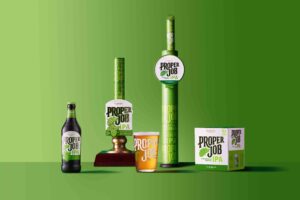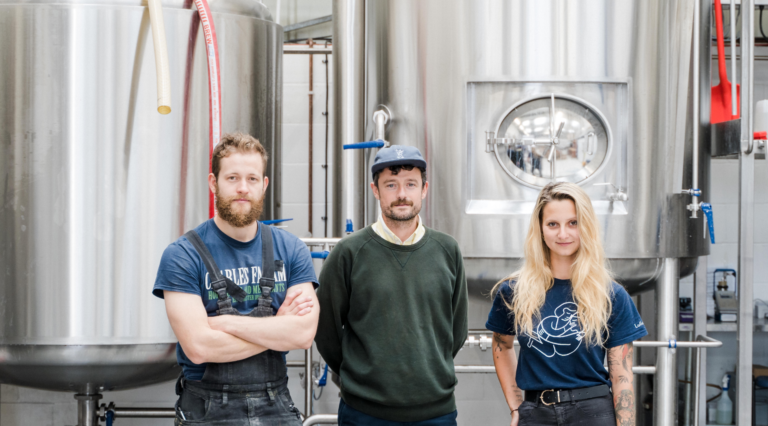Striving for, and achieving, consistency is a goal for any brewer. Because producing, and providing, a reliable and consistent product is how brand loyalty can be built. And John Keeling, guardian of Fuller’s London Pride for many years, knows just that.
I have always said that making good beer consistently is the hardest job for a brewer. If you think about it for more than a few seconds as I have (well I spent the ten minutes before I started this article thinking about it) you might even agree with me.
Why would a biological product be 100% consistent? How can one field of hops be identical to the next field? Why does a living organism like yeast ferment the same way every time? Why does a field of barley grow identically each year? The answer is of course they don’t.
So how can a brewer make their beer consistent. I would answer that a beer can only ever be consistent within a range of flavours, but it can never be 100% consistent. The trick is to tighten that range of flavours so that the drinker, when taking their first sip, instantly recognises the beer – especially if it is one of their favourites.
I always thought that the hardest beer for me to make was London Pride. That was because of its popularity, and for so many beer lovers it was their favourite. I was also acutely aware when I became head brewer that despite brewing and drinking London Pride for 18 years, many drinkers had been drinking London Pride for longer and were expert on what they expected from the flavour. Something all brewers should do is respect the consumer and actively seek their opinions.
Now if we accept that all great beer has a complex range of flavours, then the problem is that due to the biological nature of brewing, the intensity of any particular flavour is variable. The issue is to keep any variance within bounds. If you do this then in my opinion, the variation becomes a positive attribute and is the main factor in what we call the character or personality of the beer.
So, how can you manage to make your beer as consistent as possible? Raw materials and process are hugely important also but don’t forget the cellar and distribution aspect. The last one is very hard to control because it is usually not the brewer’s direct responsibility.
If we consider raw materials depending on the type of beer – so for a bitter/pale ale I would say yeast is the most important. Brewing with different yeasts would leave you with massive inconsistencies. The ultimate disaster for London Pride would have been to lose our Fuller’s yeast.
You could argue that for a hop-forward beer than the hop becomes hugely important too. If your beer depends on one or two hop varieties then you had better be good at securing a good hop supplier and form a close relationship with them. You should also bear in mind that the storage of hops is very important because they will rapidly deteriorate and ultimately change the flavour of your beer.
The same could be said for malt, I always believed that meeting the farmers and the maltsters was hugely important. I do think that our maltsters in Britain produce very consistent malt. Malt was therefore the least of my problems at Fuller’s and we did change varieties several times during my 38 years at the brewery. Never once did we get a reaction from our drinkers.
The production process needs to be controlled, measured and all data must be recorded. Only with that data can you keep refining the process to produce the consistency you desire. That is a never-ending task. The feedback loop from final product tasting/consumer reaction back to the analysis and records of the brew is invaluable.
I have always said that the first few sips of London Pride should reassure you that it is London Pride the next several sips should delight you with its flavour, some of which might be more intense than the last time you tasted it. That is the character of the beer.
To me, going into a pub and meeting your best friend, who just has happened to have had a haircut, does not change the fact that they are your best friend. Equally going to the bar and drinking your favourite beer and noticing that it is little bit more fruity today does not change that you still enjoy the characterful flavour of that particular beer.









